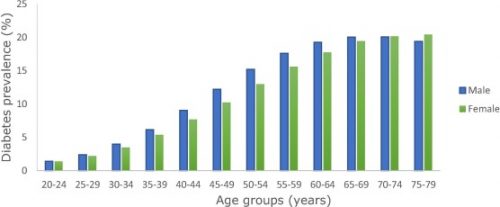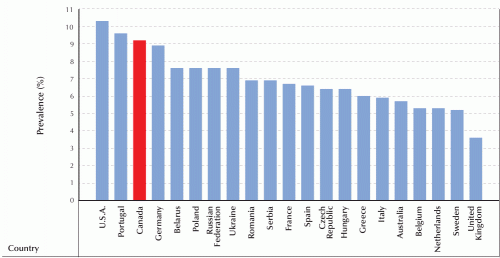I am sure you have heard people talk about their health and one of their personal COVID-19 struggles has been weight gain. Those of you who subscribe to my newsletter heard me lament about it in April talking about my book review, The Personalized Diet.
More time on the couch and easy access to the kitchen seems to be encouraging weight gain on our bodies while we shelter at home.
Many of us also tend to eat more sugar than our bodies need. I know. I watch myself and my husband’s eating and we try to keep from eating too much sugar. This can be challenging at times.
Also, at Healing Transformation we have clients who manage their diabetes with help from our bioenergy treatments. Because we often include counsel on dietary and nutritional planning for a healthier lifestyle – I keep up with the latest scientific and metaphysical research.
A healthy lifestyle
The newest issue of Vitality Magazine got me thinking — once again — about eating healthy while keeping safe during, and after, this pandemic. On Vitality’s homepage I saw the topic of their featured Whole Life Expo lecture series — Nutritional Strategies to Manage Diabetes by Andria Barrett, a culinary nutritionist – so I clicked on it. In the video, Barrett shares her tips, techniques, and supplements to create a healthy blood sugar balance. Most of the information served as a reminder for me, however I thought it to be informative and easy to understand. I highly recommend you watch it.
Barrett also reminded me about the studies linking diabetes to Alzheimer’s disease. Some researchers have coined the condition as “Type 3 Diabetes.” It appears that people who have Alzheimer’s may have a higher resistance to insulin in their brains.
Diabetes of the Brain
Considered a lifestyle disease, diabetes damages our bodies and often takes away freedoms a healthy person enjoys. Diabetes attacks our eyes, feet, hands, circulatory system, and much more including our organs. Our brain is one of our more complex organs that we have. We need to protect.
According to Australia’s non-profit organization, Diabetes NSW & ACT, people with type 2 diabetes, have a 50% to 65% increased risk of suffering from Alzheimer’s disease. That’s a substantial increase in probability. Much more than I suspected.
In the Diabetes NSW & ACT’s article What is type 3 diabetes? the author, Kate Battocchio, goes on to explain that:
“In type 3 diabetes the brain cells, called neurons, become starved of glucose, which in turn can lead to a progressive reduction in memory, reasoning, judgement and insight that characterizes Alzheimer’s disease.”
In 2019 researchers continue to confirm more of us suffer of diabetes as we age. So much so that by age 60, almost 20% of us suffer from diabetes.

Diabetes prevalence by age and sex in 2019.
These results were published in the Global and regional diabetes prevalence estimates for 2019 and projections for 2030 and 2045. Researchers estimate the prevalence in 2019 to be 9.3% (463 million people). They predict it rising to 10.2% (578 million) by 2030, and 10.9% (700 million) by 2045.
When it comes to probabilities, I want to remind you that it’s a future prediction. It may or may not happen. It’s not fact. Predictions result from a best guess by researchers using current data points. Much could change by 2030.
However, these current numbers serve as a wake-up call. Especially when you combine with the future estimated numbers plus the fact that diabetes is considered a lifestyle disease. All of us need to know the possible link between diabetes and Alzheimer’s disease. When informed, you can better protect your future health — and your wallet.
I love helping all my clients. I love you even more when your mind, body, and soul’s health improves to the level of not “needing” me — except for the occasional bioenergy treatment to boost your immune systems. So please, heed the call.
What is diabetes?
The following information comes directly from the 2011 and 2019 reports published by the Public Health Agency of Canada. I’ve almost quoted verbatim the definitions provided in the two reports.
Diabetes occurs when the body is unable to produce and/or use insulin. Insulin is a hormone that regulates blood sugar (blood glucose) and is essential for normal bodily function. Eating too much sugar can be toxic.
Currently there are three main types of diabetes:
- Type 1: Body does not produce insulin. In fact, the current understanding of Type 1 is an autoimmune disease in which the body’s immune system attacks and destroys the insulin-producing cells of the pancreas. The individual with Type 1 depends on an external source of insulin for life.
- Type 2: The current understanding is that the body can produce insulin but either not enough or is not able to use it properly. Type 2 is a metabolic disorder that occurs when the pancreas does not produce enough insulin and when the body does not properly use the insulin it makes.
- Gestational diabetes: A temporary condition during pregnancy when the body can produce insulin but is not able to use it properly. Gestational diabetes occurs when hyperglycemia develops during pregnancy.
Canada my Canada
So how are we doing in Canada? It seems we could do much better for ourselves.

This 2011 report Diabetes in Canada: Facts and figures from a public health perspective by the Public Health Agency of Canada has us as the third highest behind the United States and Portugal. This figure compares the prevalence of diabetes in European, American, and Oceania countries.
The 2019 Canadian report Twenty Years of Diabetes surveillance using the Canadian Chronic Disease Surveillance System found us increasing by an average of 3.3% per year between 2000 and 2016. The rate of new cases of Canadians living with diabetes has remained stable. Deaths have decreased.
Even at stable – 201,000 of us Canadians are being diagnosed with diabetes each year.
What can we do?
- Eat right – food first for nutrients
- Stress less – play often
- Exercise more – walk 5 days a week for 30-minutes
- Connect with nature – visit a park or forest regularly
- Experience love – stay close to those you love and love you back
- Challenge your mind – complete puzzles, take courses, or learn a new skill

You’ll find hundreds of ways to help you with eating right when you search online. One of the best I mentioned before — The Personalized Diet by Eran Segal PhD (Author), Eran Elinav MD PhD (Author), and Eve Adamson.
Although written for their targeted audience, Diabetes Canada’s healthy eating guide, Just the basics, serves as a good source of easy to read information to help modify our eating habits – quickly. You can download to print or review offline on your screen.
Diabetes UK brings up some simple ways on How to cut down on sugar.
I encourage you to be mindful of your blood sugar levels. Keep them low to keep you healthy in mind, body, and soul.
Take care of yourselves.
~ Ellen
P.S. Find more educational videos on health and eating right at Whole Life Expo Toronto’s YouTube channel.